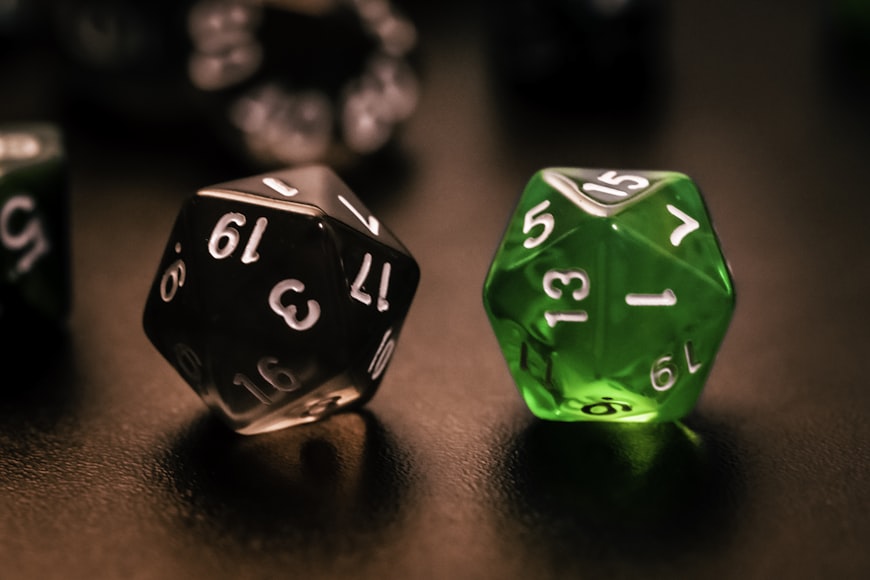
There’s been a new trend in role-playing games (RPG): professional dungeon masters, who are people that run role-playing games for money.
With RPGs, the dungeon master (DM) does quite a bit more work than the other players. They need to understand the system better than anyone else playing, design the adventure, keep track of the entire game situation, quickly adjudicate issues that come up, make sure everyone is having fun, and keep the players engaged.
In contrast, a great player doesn’t have to do anything beyond showing up to the game, pay attention, and deciding what her character does in a particular situation.
It has always been the case that there are more people who don’t want to be the dungeon master than people who want to be. Fortunately, a single DM will run the game for a group of players, but in spite of this, DMs are usually in far greater demand than players.
The easy solution to this is for players to pay dungeon masters. This can be for a local group of players, for a kid’s birthday party or corporate event, or online sessions run with video cameras and microphones. As soon as there’s cash involved, it becomes far easier to balance the numbers and players can usually get someone to run any sort of game they want.
Pro DMs and players can find one another on sites like StartPlaying, Demiplane, Roll20, and /r/lfgpremium.
Strong Feelings
As much as this is interesting, “oh, people charge for / pay for that?”, I’m amazed that each time I read about it in a public forum, some people are outraged by the very concept. Far beyond saying they’re not interested, they’ll be indignant at money changing hands for playing an RPG.
Parallels to sex work are left as an exercise for the reader.
I get people being surprised by it, it’s like finding out someone charges money to play Monopoly with people. Being angry is strange. If I found out someone was playing Monopoly while being paid by the other players, I’d be happy for them and glad it wasn’t me: “Monopoly? More like MONOTONY! Amiright?”
A friend of mine does paid DMing and she says that it improves the game experience for her in every way. Players show up for sessions, take it more seriously, and pay attention. She doesn’t think she could go back to unpaid DMing, even ignoring the money, just because it was such an inferior experience for her.
Beyond people who are angry about it, others want to be gatekeepers. They’ll say it’s ok for someone to be a paid DM if they’re doing funny voices or have a ton of miniatures or digital set pieces. I imagine players would quickly stop playing, and paying, if they weren’t enjoying a particular game, so it seems weird to me for someone to have a specific vision of a role-playing game and deciding that is the only type worthy of being a paid game.
Adam Smith, in “The Wealth of Nations” one of the foundational economics texts, articulated the concept that goods are worth what a buyer is willing to pay. This has always been fascinating to me because it implies that there isn’t an intrinsic “value” to goods and services, rather the buyer determines the price based on their desire for the product. Relating this back to professional dungeon mastering, a game is worth what players are willing to pay for it. If a professional dungeon master can get repeat customers then it’s “worth it”, by definition, whatever he’s charging and however he’s running it.
Playing With Degenerates
There’s a worry that the people you’ll be playing with, in a paid game, are players no one else wants to play with. This can be a concern any time a game is assembled from the general public rather than from friends. Mostly this is not a cause for concern, as long as some care is taken assembling the group rather than just opening the doors and selling spots to the first people who contact the DM.
The ideal players are often adults who used to enjoy role-playing, who now work at high-paying jobs that leave them with little leisure time, and are willing to pay to have the best possible experience.
I’ve written before about experiences with odd players during online RPG sessions.
Monetizing Interactions
I get that things change when money gets involved and hobbyist don’t like that change. Early in the development of personal computers, hobbyists were at odds with Bill Gates, when the hobbyists wanted to freely share information and software and Bill Gates wanted to sell it. Enthusiast communities online love RPGs and genre literature, but will get quickly outraged by someone trying to sell it.
It’s admirable to tell your aunt how much you enjoyed the Thanksgiving meal she prepared, but your family would explode with indignation if you pulled out your wallet and tried to pay her $20 for it.
In spite of this pushback, I think there’s a place for professional DMs and the players that want to hire them.
Leave a Reply